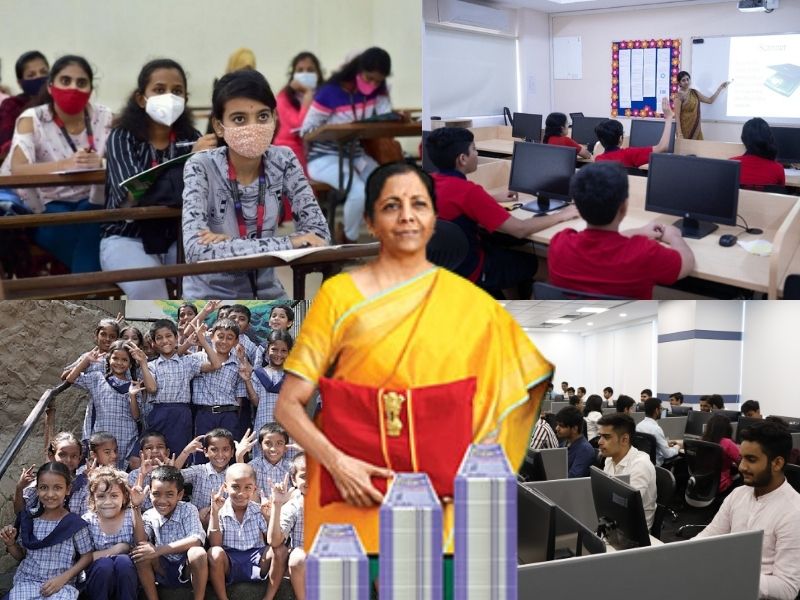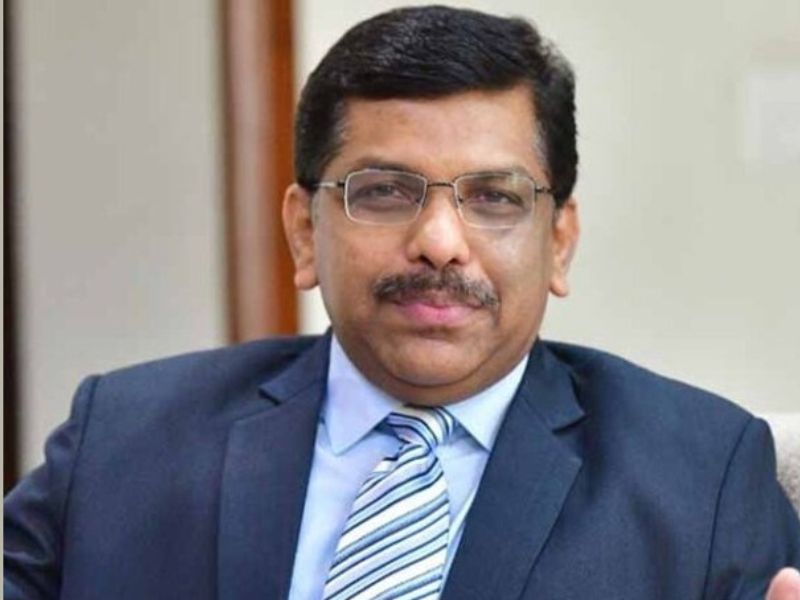Finance minister Nirmala Sitharaman is all set to present the Union Budget 2022 on February 1. The education sector, which has faced disruption during the Covid-19 pandemic is in anticipation of an overhaul.
EducationWorld spoke to experts in the field of education, educationists and researchers to understand their basic expectations out of the budget. From infrastructure upgrades in government schools to streamlined measures to implement the National Education Policy 2020, here is what they wish to see.
K-12 sector
 Shishir Jaipuria, Chairman, Seth Anandram Jaipuria Group of Educational Institutions
Shishir Jaipuria, Chairman, Seth Anandram Jaipuria Group of Educational Institutions
“Private schools are financially stressed and the government schools have witnessed learning loss and student dropout. The Union Budget must introduce policy intervention or provision to support educational institutions with easy access to credit and financing. In higher education, the budget should bring more private and public institutions in its list of ‘Institutes of Eminence’. Indian higher education has over 34.6 million students and they need adequate skilling alongside knowledge to take over responsible roles as professionals. The government may think of providing tax breaks for the upskilling and reskilling courses so that more graduates are inspired to learn skills and contribute actively to nation-building.”
Damodar Goyal, president of the Society for Unaided Private Schools of Rajasthan
 “A good amount of money for the development of infrastructure of govt schools because much of the population is dependent on that. Technology is another aspect where money needs to be pumped in and sufficient funding. Provide central funding. There are 10 lakh government schools of which 8 lakh schools lack a lot of basic facilities. This is where the immediate focus needs to be. They should put a full stop to the opening of new schools and bring existing schools into good shape. Pre-primary has been included in NEP but hardly any schools in the country have this facility. Anganawadis should be designated early childhood care centers. Pre-primaries need a formal setup and classes must be started in government schools. So sufficient allocations must be made for this.”
“A good amount of money for the development of infrastructure of govt schools because much of the population is dependent on that. Technology is another aspect where money needs to be pumped in and sufficient funding. Provide central funding. There are 10 lakh government schools of which 8 lakh schools lack a lot of basic facilities. This is where the immediate focus needs to be. They should put a full stop to the opening of new schools and bring existing schools into good shape. Pre-primary has been included in NEP but hardly any schools in the country have this facility. Anganawadis should be designated early childhood care centers. Pre-primaries need a formal setup and classes must be started in government schools. So sufficient allocations must be made for this.”
Dr Silpi Sahoo, Chairperson, SAI International Education Group
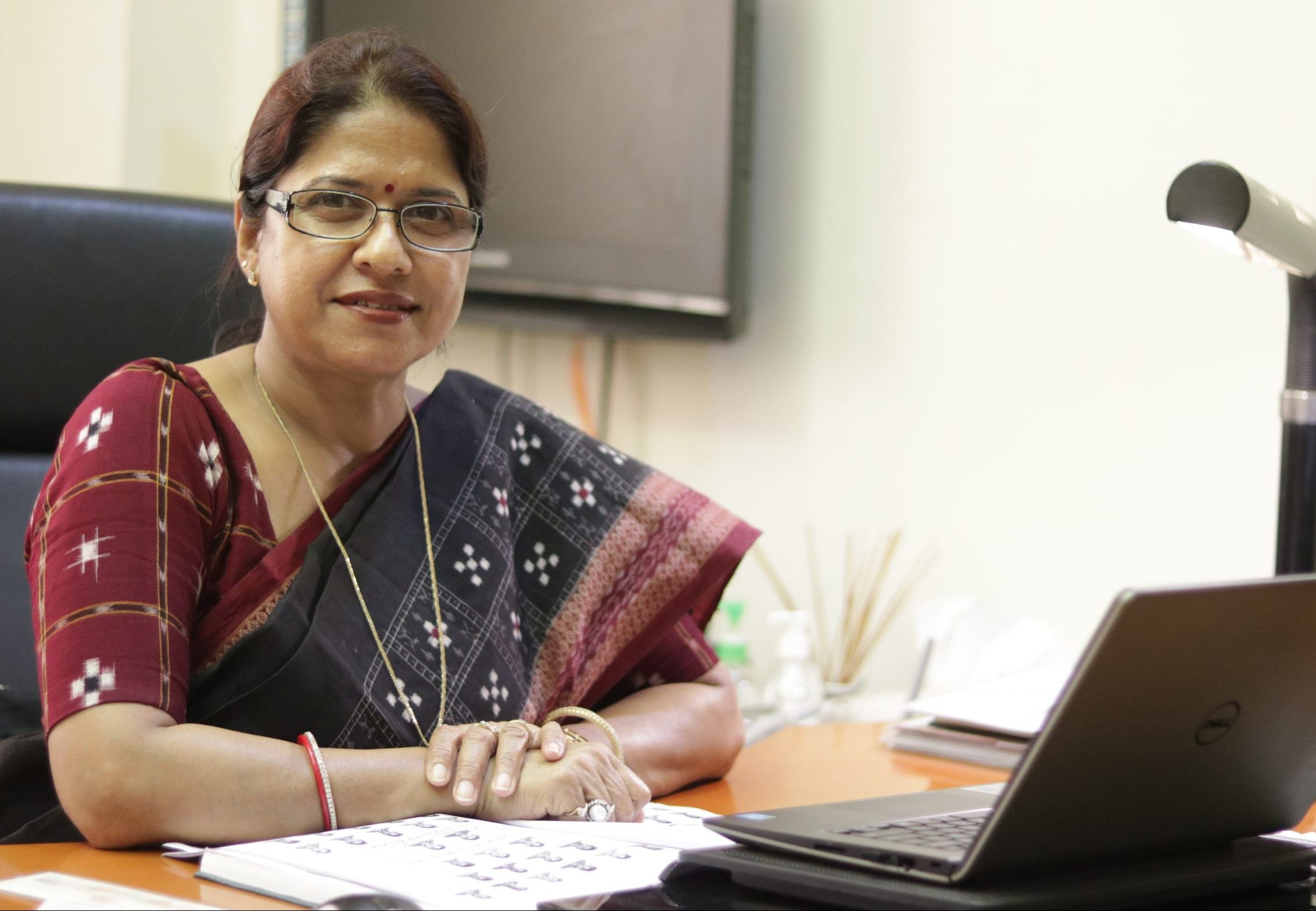 “We hope our Government shift their focus on the education sector with a vision that not a single child is deprived of quality education. We expect to see an increase in the allocation of annual budget for education from 6% as done in 2021 which amount a total allocation of Rs. 93,223 crores, against Rs. 99,311 crores in the year before that. We are hoping for an increase of allocation of the annual education budget to 10%. Currently, the GST rate which is applied on education is categorized under Education Services and hence 18% GST is levied, we expect the Government to revise the GST rate and reduce it to 5%. The pandemic has severely impacted the learning process and students are looking at the other supplementary sources, hence, reducing the GST will ease the pressure of the parents.”
“We hope our Government shift their focus on the education sector with a vision that not a single child is deprived of quality education. We expect to see an increase in the allocation of annual budget for education from 6% as done in 2021 which amount a total allocation of Rs. 93,223 crores, against Rs. 99,311 crores in the year before that. We are hoping for an increase of allocation of the annual education budget to 10%. Currently, the GST rate which is applied on education is categorized under Education Services and hence 18% GST is levied, we expect the Government to revise the GST rate and reduce it to 5%. The pandemic has severely impacted the learning process and students are looking at the other supplementary sources, hence, reducing the GST will ease the pressure of the parents.”
Santosh Kumar, Co-founder & CEO, 21K School
“Online education will be a game-changer in achieving the 50% gross enrolment ratio target by 2035 as outlined in the NEP 2020. In the years to come, education will undergo significant evolution and will be available on-demand in the form of cutting-edge technology. We would see a huge AR/VR and mixed reality at play that will provide an immersive and personalised learning experience to students. Virtual education can reach every home, empower students with more choices, enhance digital literacy and make a significant impact on the jobs of the future. The government should work towards strengthening the digital infrastructure so education can reach every home in our country. There is a shortage of thousands of teachers in our country which can be addressed through online education.”
Dr. Chenraj Roychand, Founder Chairman, JAIN Group
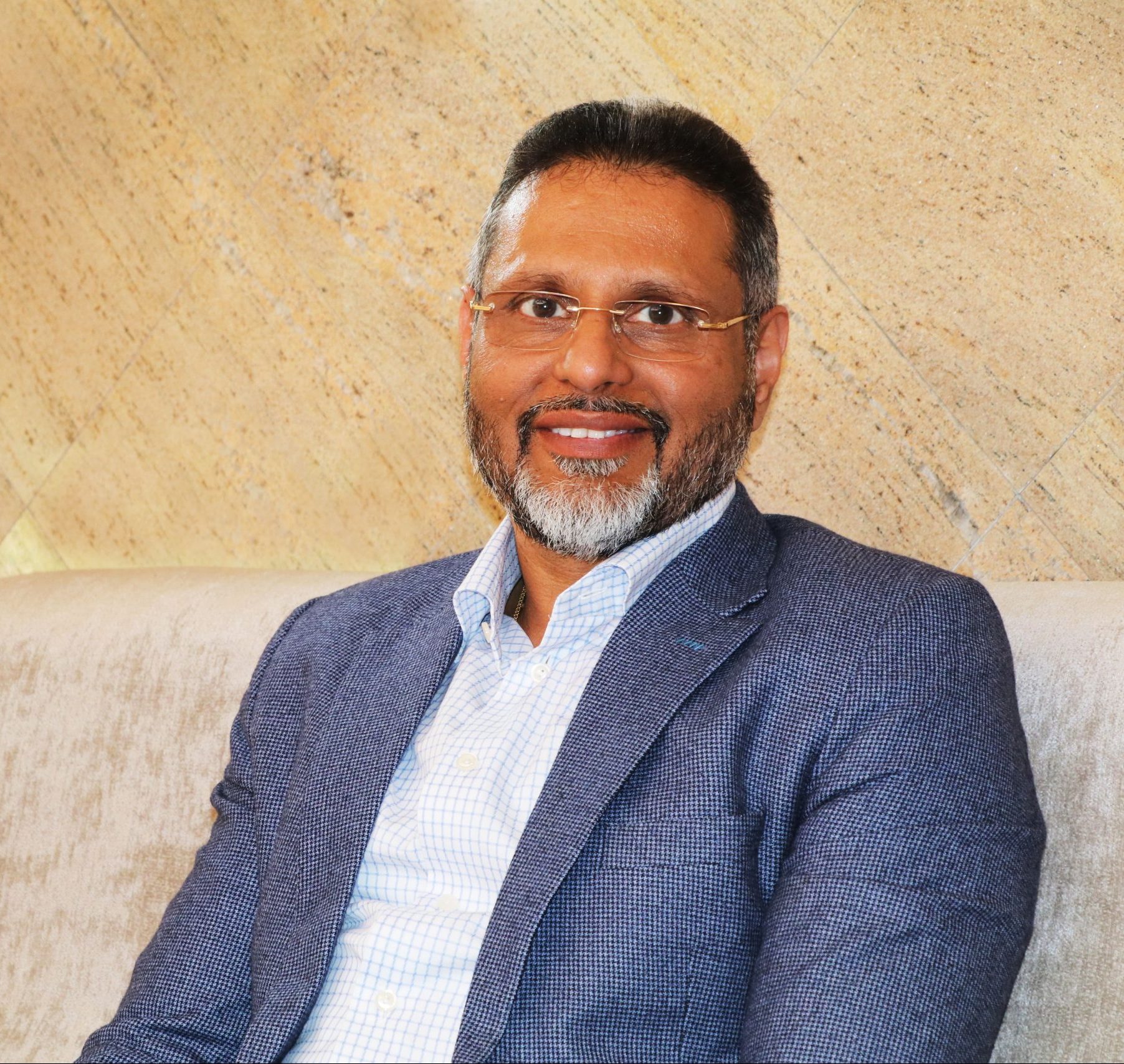 “In the current fragile state of the economy, the implementation of the National Educational Policy can be one of the main aspects of the Union Budget 2022-23. In 2021, the central government reduced its allocation towards Education by 6%, effectively making it an allocation of 93,223 crores. However, the good news this year is that it is expected to increase the allocation by around 10%. The impact of the pandemic on the education system has made us increasingly reliant on supplementary sources of education, primarily provided by private organizations. In the recent past, these had been categorized under “Educational Services” and taxed at 18% under the Goods and Services Tax (GST). This year we expect that the government will reduce this to 5%, and help to ease pressure.”
“In the current fragile state of the economy, the implementation of the National Educational Policy can be one of the main aspects of the Union Budget 2022-23. In 2021, the central government reduced its allocation towards Education by 6%, effectively making it an allocation of 93,223 crores. However, the good news this year is that it is expected to increase the allocation by around 10%. The impact of the pandemic on the education system has made us increasingly reliant on supplementary sources of education, primarily provided by private organizations. In the recent past, these had been categorized under “Educational Services” and taxed at 18% under the Goods and Services Tax (GST). This year we expect that the government will reduce this to 5%, and help to ease pressure.”
Shweta Sastri, Managing Director, Canadian International School, Bengaluru
 The government must take initiatives such as allocating bigger spending on education, pushing greater digitization, and balancing of the urban-rural gap in education. The increased allocation of funds will also ensure better quality government schools that educate the majority of children in India. We need schemes that can improve the infrastructure in the rural areas by providing better learning facilities and adequate training and upskilling to the teachers enabling them to be well-versed with the new trends in education in using modern teaching aids and tools. The government should announce programmes to foster better internet connectivity across the nation to ensure last-mile connectivity and access to affordable smartphones/tablets for students which has now taken the role of the core medium of learning.
The government must take initiatives such as allocating bigger spending on education, pushing greater digitization, and balancing of the urban-rural gap in education. The increased allocation of funds will also ensure better quality government schools that educate the majority of children in India. We need schemes that can improve the infrastructure in the rural areas by providing better learning facilities and adequate training and upskilling to the teachers enabling them to be well-versed with the new trends in education in using modern teaching aids and tools. The government should announce programmes to foster better internet connectivity across the nation to ensure last-mile connectivity and access to affordable smartphones/tablets for students which has now taken the role of the core medium of learning.
Prajodh Rajan, Co-founder and Group CEO, Lighthouse Learning
 “We are looking forward to Finance Minister to include relief steps for parents and schools, who have been deeply impacted by the pandemic. As the education sector is one of the highly impacted segments during the pandemic, we expect due consideration on operational expenses for pre-schools and schools to be able to reopen and resume operations with appropriate safety measures including access to affordable credit & financing solutions. An increased allocation for the education sector will help negate the learning gaps children have endured due to the closure of schools for more than 18-20 months. A reduction in the 18% GST levied especially on rented premises used for Pre-Schools & Schools would provide relief for the segment. More importantly, the government should also consider allocation in the Union Budget for developing the digital delivery and new age skill competencies for all the teachers.”
“We are looking forward to Finance Minister to include relief steps for parents and schools, who have been deeply impacted by the pandemic. As the education sector is one of the highly impacted segments during the pandemic, we expect due consideration on operational expenses for pre-schools and schools to be able to reopen and resume operations with appropriate safety measures including access to affordable credit & financing solutions. An increased allocation for the education sector will help negate the learning gaps children have endured due to the closure of schools for more than 18-20 months. A reduction in the 18% GST levied especially on rented premises used for Pre-Schools & Schools would provide relief for the segment. More importantly, the government should also consider allocation in the Union Budget for developing the digital delivery and new age skill competencies for all the teachers.”
Prateek Shukla, co- founder and CEO, Masai School
While we were going through a once-in-a-century pandemic, last year there was a reduction in the annual allocated spending on education by 6%. This was divided as Rs 54,873 crore for school education and literacy and Rs 38,350 crore for the higher education sector. Something the numbers won’t show is the quality of education that has been provided, at both school and higher education institutions. Nor does it make provisions for skilling our unemployed young workforce which will help them be more competitive in the private job market.
Surabhi Goel, CEO, Aditya Birla Education Academy, Aditya Birla World Academy
As children return back to school in phases, it is essential that the Government sets up programs to bridge this learning gap. One step in this process would be a robust program to train teachers on how they can work with students to bring them at par with the expected learning levels of their grade. Along with this, reduction in the GST slab for teacher training will help make these trainings accessible to all teachers. We hope that the educational reforms in Budget 2022 will result in more effective reach and aid in achieving the goals of an inclusive and Atmanirbhar education system.
AK Srikanth, CEO, KLAY
The attempts to make up for school closures via online means have met with partial success primarily because of the high costs associated with the IT infrastructure. To overcome the digital divide further on, a large allocation towards IT and Bandwidth infrastructure needs to be subsidized for students and educational institutions for a higher degree of usage. With the decision to keep schools closed for two years the biggest loss as a consequence of the pandemic has been faced by children across all age groups, specifically those below 6 years. In contrast, schools have remained open through the pandemic in most parts of the western world. To overcome this loss, it would be imperative to support schools with health and safety infrastructure models for safe premises, even though the third wave is proving to be less virulent. The pandemic has hit the Gross Enrolment Ratio unfavorably which was hovering around the 27% mark in 2018-19. In order to realize 50% by 2030, it is important that we accelerate and compensate for the lost years due to the pandemic.
Higher education sector
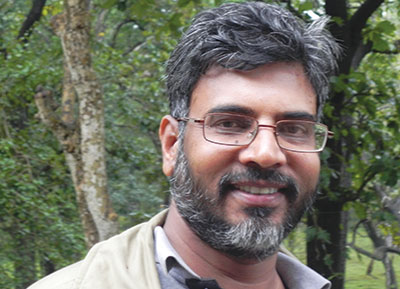 Niranjanaradhya VP, Fellow, and Programme Head – Universalisation of Education at National Law School of India University
Niranjanaradhya VP, Fellow, and Programme Head – Universalisation of Education at National Law School of India University
“Even in its 11th year, RTE compliance is very poor. Karnataka, being a progressive state shows only 23 out of 100 schools have complied with basic norms. Union territories show less than 1 % compliance. We need very specific allocations for the implementation of RTE. Further, the National Education policy talks about integrating pre-primary education with primary. Training plans must be designed even if we want to consider Anganwadi workers. Even achieving the SDG 2030 target requires a lot of manpower, academic curriculum overhaul, teacher training, and rural school restructuring. Adequate allocations and specific schemes must be announced for all this.”
Rishikesh BS, head, Hub for Education, Law & Policy, Azim Premji University
“We need to double our education expenditure to at least 6 % of our GDP to begin with as against around 3 % currently. NEP 2020 demands we spend at least 20 % of our total expenditure on education. Currently, we spend around 10 % of the total on this sector. This can be realized if a consistent effort is made by increasing 1 % over the next 10 years as the policy pragmatically suggests. This is a bare minimum necessary if we are serious about improving quality. We need more money than the current allocation for almost everything. In many States between 70% to 80% go to salaries of teachers. Hence, an increase in expenditure will have to be over and above any salary increments that take place due to the adoption of Pay Commission recommendations. Till recently, the Central Government provided only Rs. 300 for 20 days of training per year and now Rs. 1000 per teacher overall for the online mode. The policy suggests that every teacher has a minimum of 50 hours of professional development each year which should be decided by the teacher based on the various modules. For this, better investments must be done in terms of resource persons, location of the development program, materials, etc. so that teachers find it useful at the end of these programs. If this has to happen, we must invest at least Rs. 1000 per day per teacher for enhancing their professional skill (teacher training). There is also a need to immediately identify and invest in school complexes and at the same time ensure that smaller government schools is retained and re-modelled to suit the foundational stage of learning as proposed under NEP 2020.”
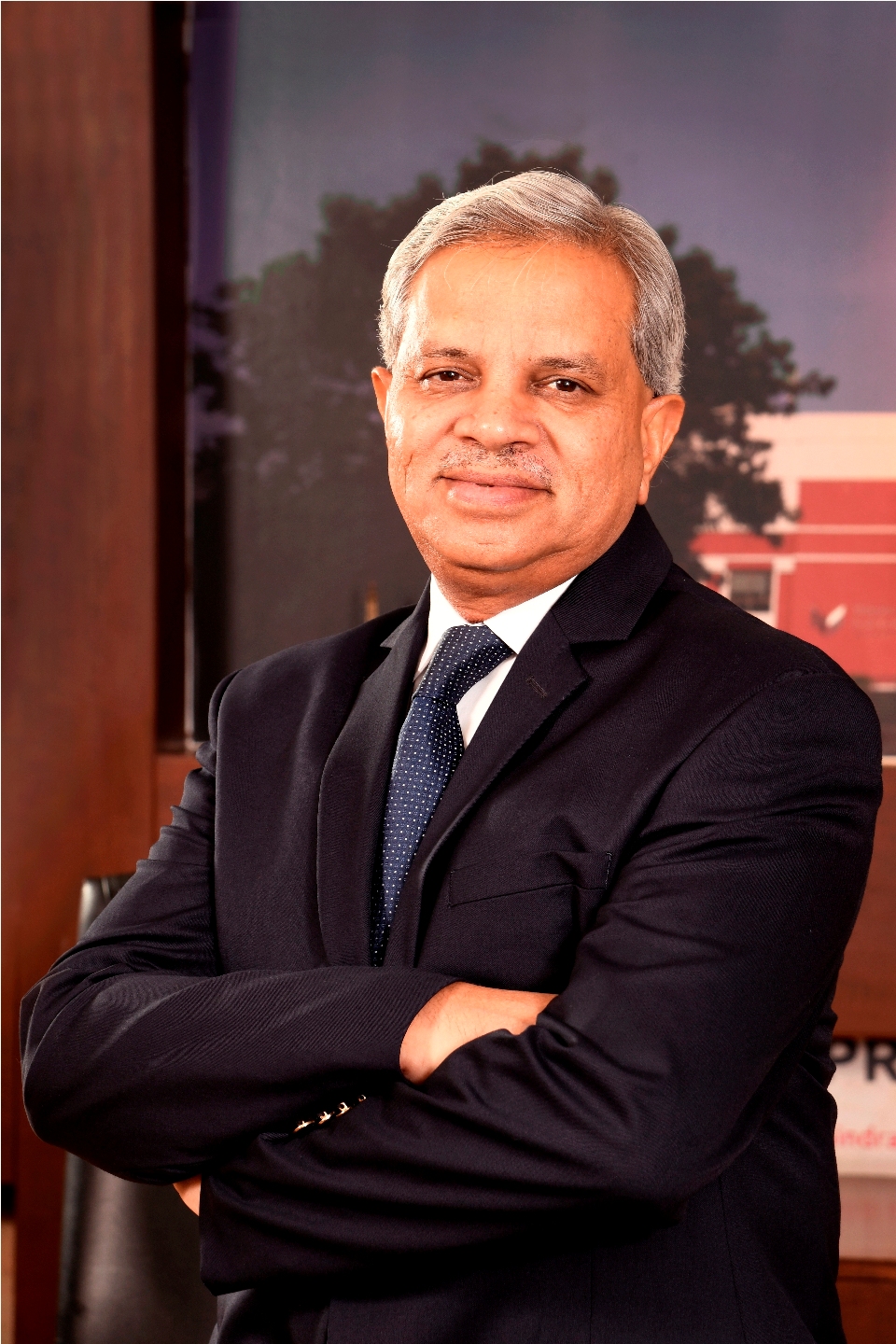
Dr. Yajulu Medury, Vice Chancellor, Mahindra University
I’m hoping that this year will witness a sizeable outlay in increasing employability of people of the country in the changed pandemic scenario. In addition to healthcare, which needs to be focused on in a big way, I am of the opinion that education sector needs a significant boost, since it will be the driver for growth in the years to come. The focus on skill enhancement programs as well as reskilling the workforce will need to be continued aggressively, if we wish to expect success in the near-future. In the last few years, there has been lowering of budgetary allocation to education and it is time and important that this gets corrected. I hope the FM will not just add to the fledgeling education budget but also ensure optimal, time bound usage of the allocated resources. I also hope that the reforms presented in NEP 2020 finally see the light of the day and sufficient budget is allocated to the central and state governments / institutions to make this a reality. In addition, I hope that the Government ensures that the budget allocated to Research in the higher education category is fully utilized.
I also wish that the Government incentivises the public and private sectors to better their e-infrastructure, e.g. optical fiber connectivity and sufficient transmission bandwidth to enable seamless delivery of education across the country.
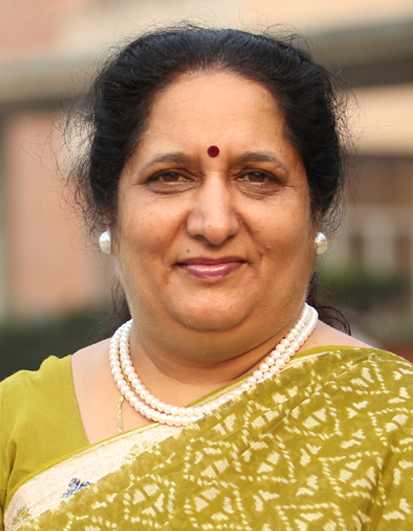 Dr Balvinder Shukla, Vice Chancellor, Amity University,UP
Dr Balvinder Shukla, Vice Chancellor, Amity University,UP
“The focus of government towards education sector needs uninterrupted attention, an increase in funds allocation by around 10% is expected. Not only government funds but active participation of private funds and Foreign direct investment is required for sustainable growth of education sector. Implementation of NEP 2020 needs more corpus in the mainstream for physical infrastructure development, implementation of technology to support imparting education, skill enhancement training Programmes etc. EdTech are forerunners in strengthening the sector, funding support for startups is also expected.”
Prof (Dr.) Y.S.R. Murthy, Founding Vice-Chancellor, RV University, Bengaluru
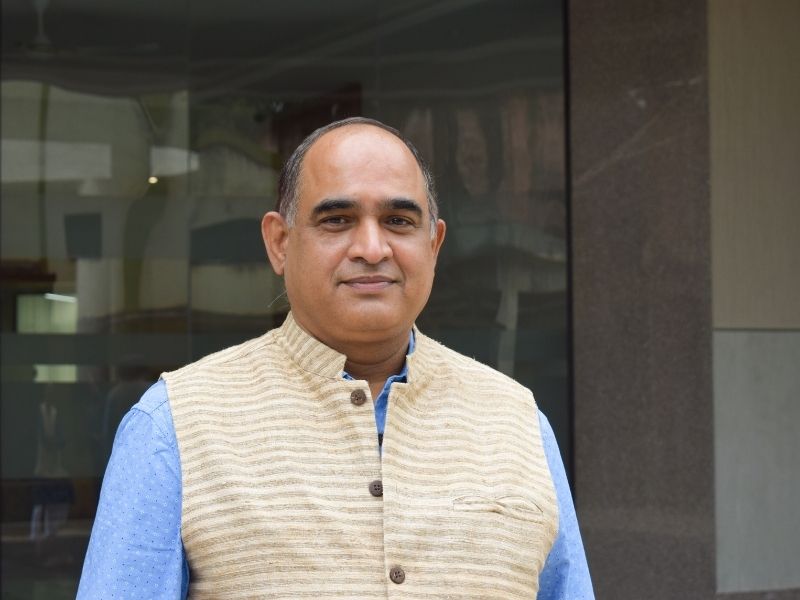 “Despite many promises, the allocation for education had never touched 6% of GDP in India. But the government should focus on the needs of the education sector in general, and higher education in particular. As two-thirds of the higher education sector is in the hands of the private sector, it is time to encourage private corporate philanthropy in a big way through fiscal and other incentives. We also need to create an enabling environment to let the private sector come forward and establish new institutions. Contributions made by a corporate or a foundation or any other grant-making entity to a University or to a research center or a center of excellence (being part of a university or higher education institution) or a new university approved by the government or an approved program under a university-industry partnership, should be eligible for deduction from taxable income to the extent of 300% of such contribution.
“Despite many promises, the allocation for education had never touched 6% of GDP in India. But the government should focus on the needs of the education sector in general, and higher education in particular. As two-thirds of the higher education sector is in the hands of the private sector, it is time to encourage private corporate philanthropy in a big way through fiscal and other incentives. We also need to create an enabling environment to let the private sector come forward and establish new institutions. Contributions made by a corporate or a foundation or any other grant-making entity to a University or to a research center or a center of excellence (being part of a university or higher education institution) or a new university approved by the government or an approved program under a university-industry partnership, should be eligible for deduction from taxable income to the extent of 300% of such contribution.
Dr. Dishan Kamdar, Vice-Chancellor, FLAME University
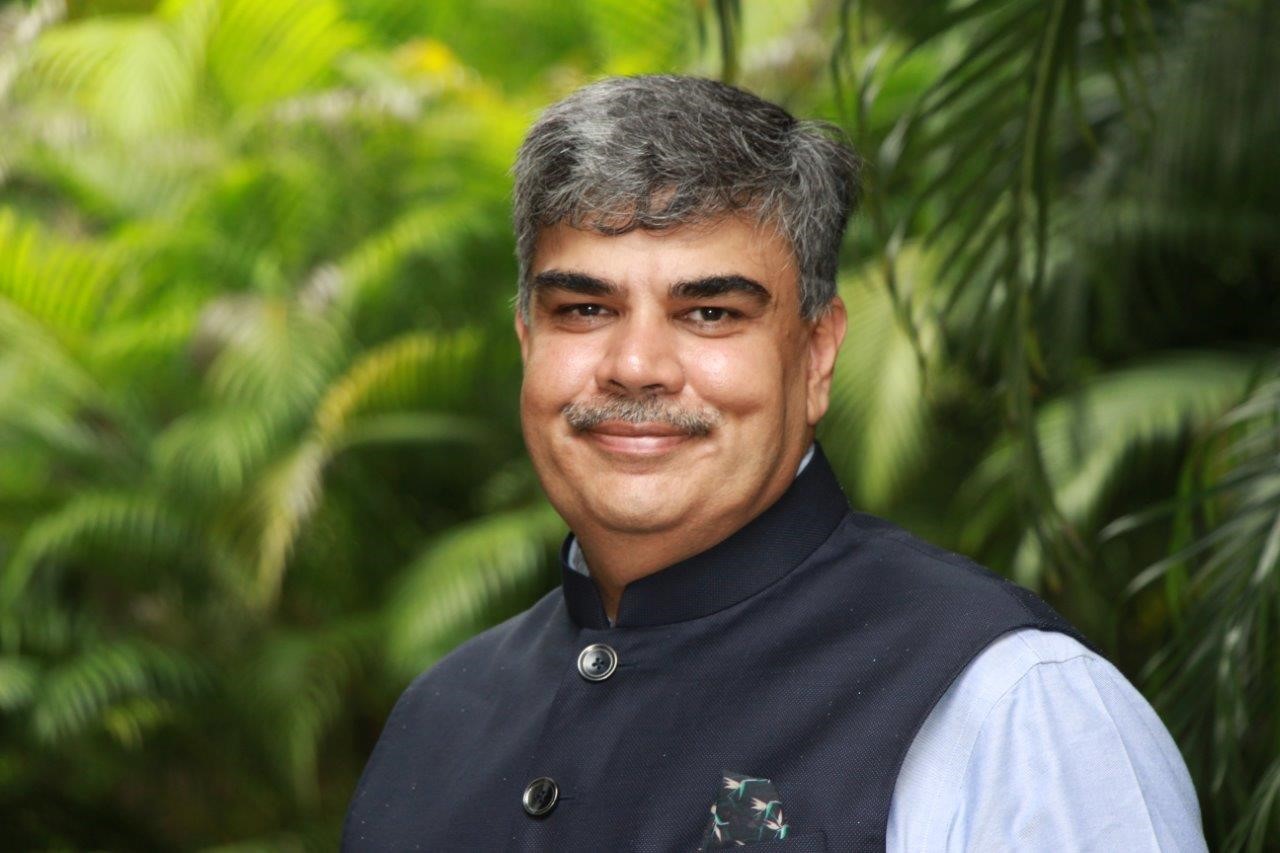 “We hope that the budgetary allocation to the overall education sector will see an increase this year, as the last two years have severely impacted both institutions and students, with a shift to the online mode. A fund allocation for the advancement in Technology Infrastructure to help enable institutes to invest in the latest technology tools, software, and high-speed connectivity will surely deliver a seamless high-quality learning experience to their students. The Government could also develop an education loan scheme for the ease in accessibility, disbursement and repayment terms which will support students from the lesser privileged strata and the deeper pockets of the country to benefit from.”
“We hope that the budgetary allocation to the overall education sector will see an increase this year, as the last two years have severely impacted both institutions and students, with a shift to the online mode. A fund allocation for the advancement in Technology Infrastructure to help enable institutes to invest in the latest technology tools, software, and high-speed connectivity will surely deliver a seamless high-quality learning experience to their students. The Government could also develop an education loan scheme for the ease in accessibility, disbursement and repayment terms which will support students from the lesser privileged strata and the deeper pockets of the country to benefit from.”
Dr. Akhil Shahani, Managing Director, Thadomal Shahani Centre for Management, Shahani Group
 “IMD’s World Competitiveness ranking places India’s education sector at a dismal 59th place out of 64 countries, with only 45% of all graduates being considered employable. Obviously, we cannot expect India’s government to bridge this education-employability gap by itself. It needs greater support from the private sector along with wider deployment of technology to ensure its goal of quality education for all is met. The union budget can facilitate this by reducing the GST rate for providing educational technology & ancillary services from 18% to at least 5%. In addition, it should allow private investors to set up schools & colleges with the ability to generate profits and equity returns. It should also allow foreign educational institutions to easily set up campuses in India, to promote healthy competition with local players. Collateral requirements for school/college educational loans should be reduced, along with interest rates, by public sector banks, to allow more families to afford the fees of quality institutions. Special sops need to be given for teacher training colleges, to enable them to expand & provide higher quality talent to institutions.”
“IMD’s World Competitiveness ranking places India’s education sector at a dismal 59th place out of 64 countries, with only 45% of all graduates being considered employable. Obviously, we cannot expect India’s government to bridge this education-employability gap by itself. It needs greater support from the private sector along with wider deployment of technology to ensure its goal of quality education for all is met. The union budget can facilitate this by reducing the GST rate for providing educational technology & ancillary services from 18% to at least 5%. In addition, it should allow private investors to set up schools & colleges with the ability to generate profits and equity returns. It should also allow foreign educational institutions to easily set up campuses in India, to promote healthy competition with local players. Collateral requirements for school/college educational loans should be reduced, along with interest rates, by public sector banks, to allow more families to afford the fees of quality institutions. Special sops need to be given for teacher training colleges, to enable them to expand & provide higher quality talent to institutions.”
As we enter into the third wave of the Pandemic, it is quite evident that the Early-Years Education sector needs the Government’s support in this year’s Budget. While last year saw a reduction of education spending by over 5%, an increase of 10% or above becomes vital.
 Charanpreet Singh, Founder & Director, Praxis Business School Foundation
Charanpreet Singh, Founder & Director, Praxis Business School Foundation“Speaking as an educationist, I would like to see a larger proportion of the budget allocated to education. Given a larger outlay, emphasis must be placed on ensuring universal access to education from Primary all the way up to Graduate & Post Graduate levels. Importance must also be given to Research and Development. In the coming years nations with IP rights stemming from original research will be true wealth creators.”
Ashok Mittal, Chancellor, Lovely Professional University
“After a long battle with the Covid impact, the education industry is expecting an increase in the budget allocation that shall cater to various emerging needs. Within the set framework of the National Education Policy, we all are waiting for a detailed overview of the key areas that the government wants to focus on. Need of the hour being advancements in training and skilling, technological development, digital amplification, quality pedagogy and futuristic tools. Since EdTech was a great revolution that we all witnessed and experienced during these unprecedented times, this transformation demands huge rebates for increasing IT infrastructure capabilities. Currently, there are no subsidies for universities and institutions. These inclusions will not only help in the smooth functioning of the established institution but will open avenues for the newer players, as well. Access to affordable education needs to be implemented keeping in view that loan sanctions are a tedious process with limited conversions and high rates of interest. Therefore, there should be a streamlined mechanism for students to pursue qualifications as per their interests and capabilities”
Edtech sector
Nirmal Shah, co-founder of Countingwell
“In this year’s Budget, we hope to see a concerted push for using technology to improve education delivery as well as learning outcomes in line with the National Education Policy (NEP) 2020. We also hope to see policy measures that proactively seek to mitigate the digital divide and enable access to digital or online learning for all.”
Akshay Munjal, Founder, and CEO, Hero Vired
 “The pandemic has reaffirmed the significance of digital technologies to sustain the momentum of learning. Hence, the Budget should consider EdTech as a potent tool that can multiply the reach of education. It should prioritize scaling up allocation to the EdTech sector by 7-8% from 2021. In addition, rationalizing 18% GST in online education services would go a long way in making e-learning more affordable and realising its benefits. Moreover, there should be a tax rebate on expenses incurred on online learning programs. This is especially important in India as we face a unique ’employability paradox’. Against the backdrop of conducive policies such as the National Education Policy (NEP), strengthening infrastructure, ahead of the 5G rollout, will ensure equitable access to the highest-quality education to all learners. While NEP 2020 holds a lot of promise, much will hinge on its implementation this year.”
“The pandemic has reaffirmed the significance of digital technologies to sustain the momentum of learning. Hence, the Budget should consider EdTech as a potent tool that can multiply the reach of education. It should prioritize scaling up allocation to the EdTech sector by 7-8% from 2021. In addition, rationalizing 18% GST in online education services would go a long way in making e-learning more affordable and realising its benefits. Moreover, there should be a tax rebate on expenses incurred on online learning programs. This is especially important in India as we face a unique ’employability paradox’. Against the backdrop of conducive policies such as the National Education Policy (NEP), strengthening infrastructure, ahead of the 5G rollout, will ensure equitable access to the highest-quality education to all learners. While NEP 2020 holds a lot of promise, much will hinge on its implementation this year.”
Aakash Chaudhry, Managing Director, Aakash Educational Services Limited (AESL).
The government should announce an attractive stimulus package and provisions for the education industry to bridge the glaring gap between urban and rural populations. The Government also needs to support telecom companies so that they develop better infrastructure, internet connectivity, access to modern devices, ensuring last-mile delivery, quality guidance to the underserved who have been left behind owing to the digital divide. While skilling, reskilling and upskilling will be the new normal, we need to develop more institutes like IITs, IIMs. NIIT, association with foreign universities offering new-age curriculum in sync with global standards to propel future workforce to be industry-ready. The Government should focus on major fund allocation towards innovation, research and development to help talent create lucrative employment opportunities.
Anand Maheshwari, Managing Director, Allen Digital Pvt. Ltd.
“The industry is looking up to the union budget 2022, as massive disruptions induced by the pandemic wreaked havoc in the education sector. The government initiatives have been laudable as it has taken major strides in building a strong e-learning ecosystem, and we hope that the budget will address some of the key concerns and pave the way for stronger education and ed-tech sector. The recently formed consortium for ed-tech players to self-regulate their activities will bring more transparency, and trust among parents and students. Now, it is for the government to announce programs to foster better Internet connectivity infrastructure across the nation that ensures last-mile connectivity and importantly help them with robust data protection laws. Additionally, the budget shall support the eligible e-learning platforms in the form of longer-duration tax exemptions and funding support. ”
Dhuwarakha Sriram, Chief of Generation Unlimited (YuWaah) & Youth Development and Partnerships at UNICEF
“India’s 350 million+ young people are the biggest opportunity the country has for economic and social progress. Nurturing their leadership and mindset is the best investment India can make. If we give our young people access to future skills, economic opportunities, and safe spaces, we can unlock a bright future for them while fostering nation-building and societies’ collective prosperity. Nearly 4% of our population in rural areas has access to computers compared to 23% in urban areas (Source: 2020 NSO Report on Education). As the pandemic has resulted in a higher pace of technological advances and rapid shift to online learning, addressing digital inequality and supporting young people to gain relevant skills of today’s job market and youth entrepreneurship opportunities should be top priorities for the upcoming Union budget 2022. In addition, we must focus on supporting the most marginalized and vulnerable young people, such as young women and people with disabilities, so that no young person is left behind.”
Avinash Kumar, Founder, Credenc
“The Government slashed its allocation towards education in the annual budget by 6% last year, amounting to a total allocation of Rs. 93,223 crores, against Rs. 99,311 crores in the year before that. This year, the education sector seeks higher allocation in the overall budget. With a considerable shift to virtual or online education models, ensuring access to better technology and improved e-Learning infrastructure should be prioritized to reduce the digital divide in smaller towns and cities. We are hopeful that the government relaxes the education infrastructure loans and expands the income tax provision under Section 80C for deduction of education expenses.”
Siddharth Maheshwari, Co-Founder, Newton School
“Indian startups have played a vital role in the growth of the economy. While the pandemic forced us into a reset, technology brought about an accelerated transformation in almost all the sectors. The tech job market has taken the front seat in driving economic growth as well as employment in the country. At Newton School, we have witnessed the rapid increase in the demand for talent in tech. As India is set to be a $1 trillion digital economy by 2025, we are proud to see Newton School students actively contributing to the growth of the country’s economy with cumulative packages of more than Rs. 70 crores.”
Divya Jain, Co-Founder, Seekho
“We are hopeful that the Union Budget 2022-23 will focus on making education inclusive to all. Ed-tech has been the biggest disruptor in the decade however, ed-tech startups continue to pay GST at 18%. Reducing the GST rates will mean ease of access to quality learning to students that will form our future workforce. Tuition fees, for long, have been eligible for a tax deduction. With learning and upskilling being the need of the hour, there needs to be individual tax benefits provided to online learners. The framework for NEP is already laid and we are hopeful this budget will address the 10-year roadmap for policy implementation. We also expect the government will work with ed-tech companies as collaborative partners and create learning solutions for Tier-II and Tier-III cities.”
Subramanyam Reddy, Founder & CEO – KnowledgeHut
“India has the youngest working population in the world. While this demographic dividend is a huge advantage, it will only last another 20 years. To achieve the goal of becoming a $ 5 trillion economy as laid out by the Hon’ble Prime Minister, we must ensure this population is adequately skilled in the skills of the future – the skills that are most in-demand globally. These include artificial intelligence (AI) and machine learning (ML), augmented reality (AR) and virtual reality (VR), blockchain, cloud computing, cybersecurity, and data science among others. Here, India has a huge advantage and given the right impetus, from the government, can easily become the skilling capital of the world. At the minimum, a skilled and competitive workforce as per international standards is essential for the country and the Budget must encourage and help enterprises that have been working in this area to scale up and maximise access across the country.”
RCM Reddy, MD & CEO, Schoolnet India Ltd
“Schoolnet India looks forward to the Budget 2022-23, as the past year has been very challenging for school education. In keeping with the National Education Policy 2020, we hope that the Government of India announces measures to strengthen the digital capability of each school, owing to the great digital divide that still exists, on a mission mode. Such a digital initiative should be holistic including access to the internet, affordable & appropriate devices, projectors, teacher training in digital pedagogy, curriculum-centric multimedia content, adaptive assessments, and analytics to track progress. Given the considerable expertise of the private sector in Edutech, PPP models could be explored to execute such a mission. This will set the foundation on which the effectiveness of teaching and learning will improve and pave the path to democratise access to education.”
 Sonali Khan, Managing Director at Sesame Workshop India
Sonali Khan, Managing Director at Sesame Workshop India
Last year, to address the Covid 19 exigencies, the education budget was reduced. However, today when the country is better prepared to address the pandemic, it’s critical that we increase the allocation to the education budget and find out a way to reduce the increased inequity in access of education. While the RTE act provides free and compulsory education to children of 6 to 14 years of age, given the considerable loss of incomes of a sizable population, it would further be best to ensure educational and health needs of children by lowering the age from 6 to 3. Aligned with Nipun Bharat, this could be the first step to initiate the ECD mission for the country.
Also read: Union Budget 2021-22: Bare cupboard for world’s high-potential children
Posted in National, News













